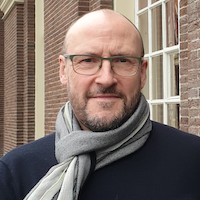Dans la même rubrique
-
Partager cette page
Nick MARTIN

Adresse courrier :
ULB - Campus du Solbosch
Avenue F.D. Roosevelt, 50 - CP 124
1050 Bruxelles
Bio
Nick est titulaire d'un doctorat en sciences politiques de l'Université d'Amsterdam (UvA) et, est chercheur postdoctoral FNRS au CEVIPOL. Avant de commencer son doctorat à l'UvA, Nick a mené une longue carrière de cadre supérieur et de gestionnaire, qu'il a culminé avec le poste de directeur général du Parti vert d'Angleterre et du Pays de Galles (GPEW). À ce titre, il était responsable des campagnes électorales nationales et locales, des stratégies de communication et de la planification stratégique. Il a été le directeur de campagne national du parti pour les élections générales de 2017.
CV
Téléchargez-le ici
Domaines de recherche
- La relation entre les partis politiques et la société civile organisée
- La représentation des intérêts et l'articulation de nouvelles revendications par les mouvements sociaux
- L'analyse comparative des élections, des campagnes et de la volatilité électorale
- Les stratégies électorales et politiques des partis politiques, en particulier des partis de la gauche dominante et de la gauche radicale
- Application de la pensée écologique à l'étude des partis et de la société civile
- Travaux sélectionnés
-
Martin, N. (accepté avec Politics of the Low Countries – à paraître) ‘De la divergence à la convergence : degrés de formalité dans les liens entre deux partis politiques progressistes flamands et la société civile organisée’, détails de la source à suivre.
Martin, N. (2024) ‘Rester proche ou s’éloigner ? Expliquer les chemins divergents empruntés par les partis socialistes belges pour se connecter à la société civile’, Acta Politica, 59, 289-319. https://link.springer.com/article/10.1057/s41269-023-00293-8
Martin, N., De Lange, S.L. et van der Brug, W. (2022a) ‘Garder les électeurs en période de volatilité : nouer des liens avec la société civile’, Party Politics, 28 : 2, 354-364. https://journals.sagepub.com/doi/full/10.1177/1354068820980304
Martin, N., De Lange, S.L. et van der Brug, W. (2022b) ‘Rester connecté : expliquer les liens durables des partis avec la société civile’, West European Politics, 45 : 7, 1385-1406. https://www.tandfonline.com/doi/full/10.1080/01402382.2021.1986784
Martin, N. et Krouwel, A. (2024) ‘Les Pays-Bas – toujours européens dans l’œil de la tempête populiste’, Blog de politique européenne de la LSE, https://blogs.lse.ac.uk/europpblog/2024/05/31/the-netherlands-still-european-in-the-eye-of-the-populist-storm/
Martin, N. et Krouwel, A. (2023) ‘Les plateformes communes ne fonctionnent jamais – mais la gauche néerlandaise peut-elle s’opposer à la tendance?’, Blog de politique européenne de la LSE, https://blogs.lse.ac.uk/europpblog/2023/09/19/joint-platforms-never-work-but-can-the-dutch-left-buck-the-trend/
